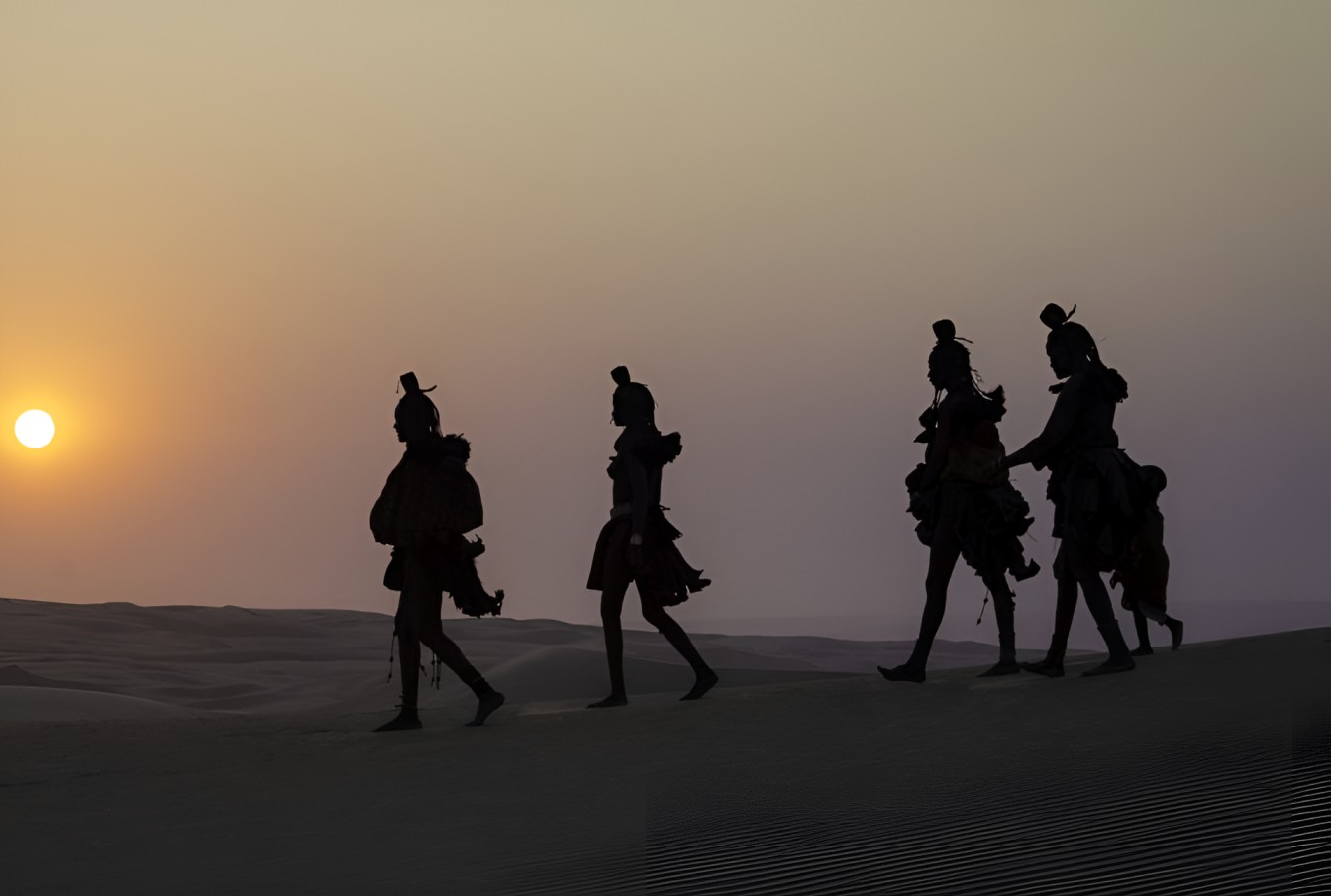In the scorched beauty of northern Namibia, where the land wears a robe of red earth and the sun reigns like a silent king, lives a people whose customs are as timeless as the desert wind—the Himba.
Here, the earth is not merely soil, and the fire is not just warmth. Everything has a spirit, and everything belongs to a cycle older than memory.
The Himba walk slowly, deliberately, wrapped in ochre and wisdom, their skin and hair glowing the color of flame and blood.
Each morning begins not with an alarm, but with the rhythm of goats’ hooves, the hiss of wood-fed fires, and the soft chants of women grinding maize.
The air carries the scent of otjize, a sacred paste of red ochre and butterfat that Himba women smear on their skin and hair.
It is not decoration. It is protection. From the sun. From insects. From evil. It marks beauty and identity. It binds them to the ancestors.
There are no mirrors in the Himba huts, only memory and ritual. Hair is sculpted into thick, clay-coated braids that tell stories without words.
The number of plaits, their direction, and their adornments reveal age, status, motherhood, and even readiness for marriage. A Himba woman carries her entire biography in her hair.
Homes are made from earth and dung, shaped by the hands of women. Inside these round huts, fire always burns. Not for cooking, but for spirit. This fire, the okuruwo, is sacred.
It connects the living with the dead. Each family’s flame is eternal; it is never allowed to die. Even when the winds howl across the plains, the flame is sheltered, fed, and spoken to.
When a child is born, the elders consult the smoke of the okuruwo. They listen, not for a name, but for a whisper from the ancestors.
The child’s purpose must align with those who came before. And so, the child grows up not simply as a son or daughter, but as a continuation of the clan's soul.
Time in Himba land is not measured in hours but in rituals. A girl becomes a woman not through age but through ceremony. At dusk, under a canopy of starlight and drumbeats, she is anointed by her mother, her aunties.
Her body is wrapped in beads, leather skirts, and layered perfumes made from herbs, smoke, and crushed resin. Her face is smeared with otjize, her eyes lined with charcoal, and her spirit opened to the ancestors.
Marriage is not a union of two, but a weaving of bloodlines. Cattle, sacred and symbolic, are exchanged. Songs are sung to call on the past and secure the future.
There is no rush in a Himba wedding. Each moment is sacred. Each gesture means something.
But perhaps the most fascinating tradition of the Himba is their relationship with water, or the lack of it. Bathing, as the world knows it, is not their way. The women purify themselves with smoke.
Every day, they sit by smoldering charcoal and let aromatic herbs cleanse their bodies and hair.
It is a ritual of stillness, meditation, and fragrance. The desert may be dry, but the Himba smell like earth and heaven.
They do not chase the world beyond their borders, though it arrives uninvited. Roads, tourists, cameras. The Himba endure without changing, watching with eyes that have seen centuries pass. They are not afraid of change, they simply do not bow to it.
In the twilight hours, when the sand glows red and shadows grow long, the Himba gather. They speak in low tones, their laughter like soft thunder, their eyes reflecting firelight.
The young sit at the feet of the elders, learning the weight of silence, the shape of legends. The sacred fire burns steadily. The past watches. The future listens.
And so, in a world moving too fast to see itself, the Himba remain, rooted in red dust, wrapped in tradition, whispering back to the wind with dignity, grace, and flame.

